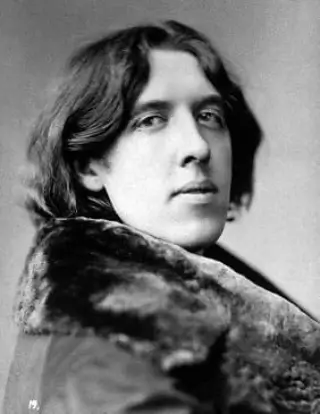Biography of Oscar Wilde

| date | place | |
|---|---|---|
| born | October 16, 1854 | Westland Row, Dublin |
| died | November 30, 1900 | Paris, France |
Oscar Wilde was born on October 16, 1854, in Dublin, Ireland, into a well-to-do Anglo-Irish family. His father, William Wilde, was a distinguished surgeon and eye specialist, while his mother, Jane Francesca Wilde, was a poet and nationalist known for her literary contributions under the pseudonym Speranza. Wilde grew up in an intellectually stimulating environment that fostered his early love for literature and the arts. He attended Portora Royal School and later Trinity College Dublin, where he excelled academically and developed a reputation for his wit and charm. At Oxford, he was influenced by the Aesthetic movement, which championed "art for art's sake," and won the prestigious Newdigate Prize for his poem "Ravenna" in 1878. After graduating from Oxford, Wilde moved to London in 1879 to pursue a career in writing. He quickly became a prominent figure in London’s literary circles, known for his flamboyant style and sharp wit. His first major work was "The Happy Prince and Other Tales" (1888), a collection of children's stories that showcased his talent for storytelling and moral themes. However, it was his only novel, "The Picture of Dorian Gray" (1890), that solidified his reputation as a leading literary figure. The novel explores themes of vanity, moral corruption, and the pursuit of beauty, reflecting Wilde's own struggles with societal norms. Wilde's plays gained immense popularity during the 1890s. Works such as "Lady Windermere's Fan" (1892) and "The Importance of Being Earnest" (1895) are celebrated for their clever dialogue, social commentary, and incisive humor. His ability to critique Victorian society while entertaining audiences made him one of the era's most successful playwrights. Despite his professional success, Wilde's personal life was tumultuous. He had a passionate relationship with Lord Alfred Douglas, which ultimately led to his downfall. In 1895, Douglas’s father, the Marquess of Queensberry, publicly accused Wilde of being homosexual—a crime at the time. Wilde initially sought legal recourse but ended up being arrested for "gross indecency." He was convicted in May 1895 and sentenced to two years of hard labor. During this time, he endured harsh conditions that severely impacted his health. After his release in 1897, Wilde lived in exile in France under the name Sebastian Melmoth. He wrote "De Profundis", a poignant letter reflecting on his experiences and spiritual transformation during imprisonment. Despite facing societal rejection and personal hardship, Wilde continued to write until his death from meningitis on November 30, 1900, in Paris. Wilde’s legacy endures through his brilliant works that combine humor with profound insights into human nature and society. Today, he is celebrated not only for his literary genius but also as a symbol of the struggle for LGBTQ+ rights and acceptance in a time of intense social conservatism. His life story remains a testament to the complexities of identity, love, and artistic expression. Oscar Wilde's poetry is renowned for its exquisite craftsmanship and profound exploration of themes such as beauty, love, and societal critique. Central to many of his works is the idea of "art for art's sake," which underscores Wilde's belief that aesthetic beauty should be appreciated independently of moral considerations. In poems like "The Sphinx," Wilde delves into the allure and complexity of beauty, portraying it as both enchanting and misunderstood. His use of rich imagery and ornate language captivates readers, inviting them to reflect on the transient nature of beauty and its impact on the human experience. Wilde’s poetic style is characterized by its lyrical quality and sharp wit, making his verses resonate with both emotional depth and intellectual rigor. Wilde's poetry also serves as a vehicle for "social satire", where he critiques the moral hypocrisy of Victorian society. Through his keen observations, he addresses issues such as love, desire, and the constraints imposed by societal norms. Poems like "The Ballad of Reading Gaol" poignantly reflect on the harsh realities of life, particularly during his imprisonment, blending somber reflection with biting irony. Wilde's exploration of homoeroticism and personal identity further enriches his work, as he navigates the complexities of love in a repressive society. Overall, Oscar Wilde's poems remain a vital part of literary discourse, celebrated for their artistic brilliance and enduring relevance in discussions about beauty, morality, and human relationships.
Feel free to be first to leave comment.